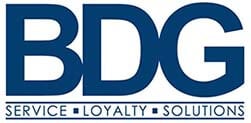An unexpected disruption of income streams could lead to commercial property owners facing legal actions. You may, however, have options to avoid a lender’s foreclosure litigation. If you experience cash flow problems from reduced rental income or sales revenue, you may work with your lender or mortgage servicer to avoid problems.
As noted by Forbes, commercial real estate owners could take proactive steps to prevent losing their properties to foreclosure. If you expect to miss a payment you may, for example, contact your lender to discuss an alternative arrangement. Many lenders prefer to receive a partial payment rather than begin a lengthy foreclosure procedure.
When may lenders demand payment of mortgage balances?
Mortgage terms generally outline when lenders consider accounts in default. The American Bar Association notes that creditors may then seize property held as collateral for the loan.
If you do not contact your lender and work out a payment arrangement, you could receive a demand letter. Your lender’s attorney may send a written notice requesting immediate repayment of the full balance left on your mortgage.
How long may a commercial foreclosure procedure last?
California allows commercial lenders to use both judicial and nonjudicial foreclosure procedures. As described by CommercialCafe.com, lenders may initiate a judicial foreclosure through a court action. Borrowers typically have 30 days to respond.
In a judicial foreclosure, you could contest the auctioning of your property by requesting a trial or “acceleration.” With a nonjudicial foreclosure, however, a lender may ask the court for authorization to move forward and sell the property to obtain the full amount owed.
Proactive steps to avoid foreclosure litigation could include working out alternative arrangements with the lender to cover late mortgage payments. A commercial lender may prefer to offer a certain degree of flexibility rather than begin the foreclosure process.

